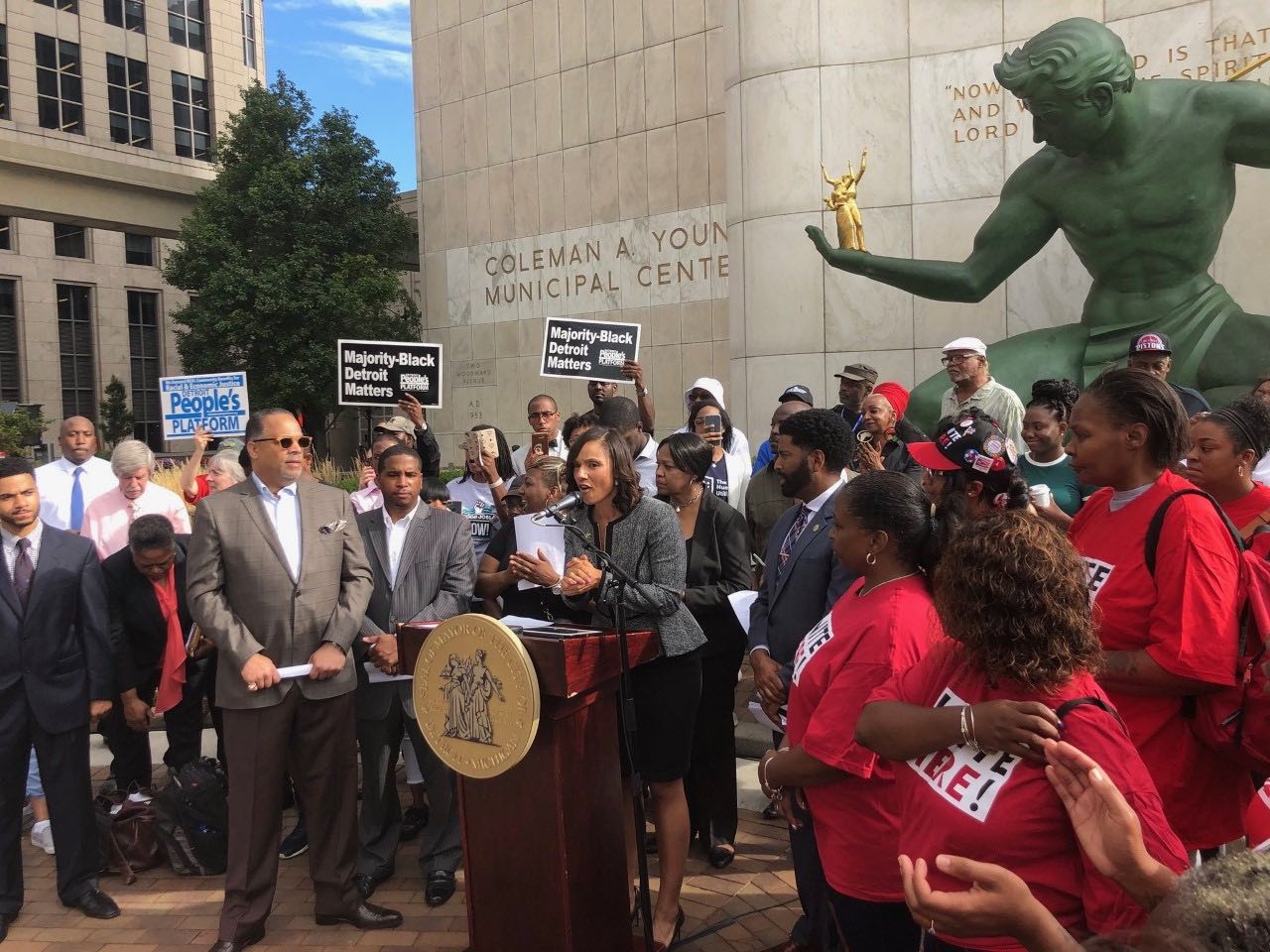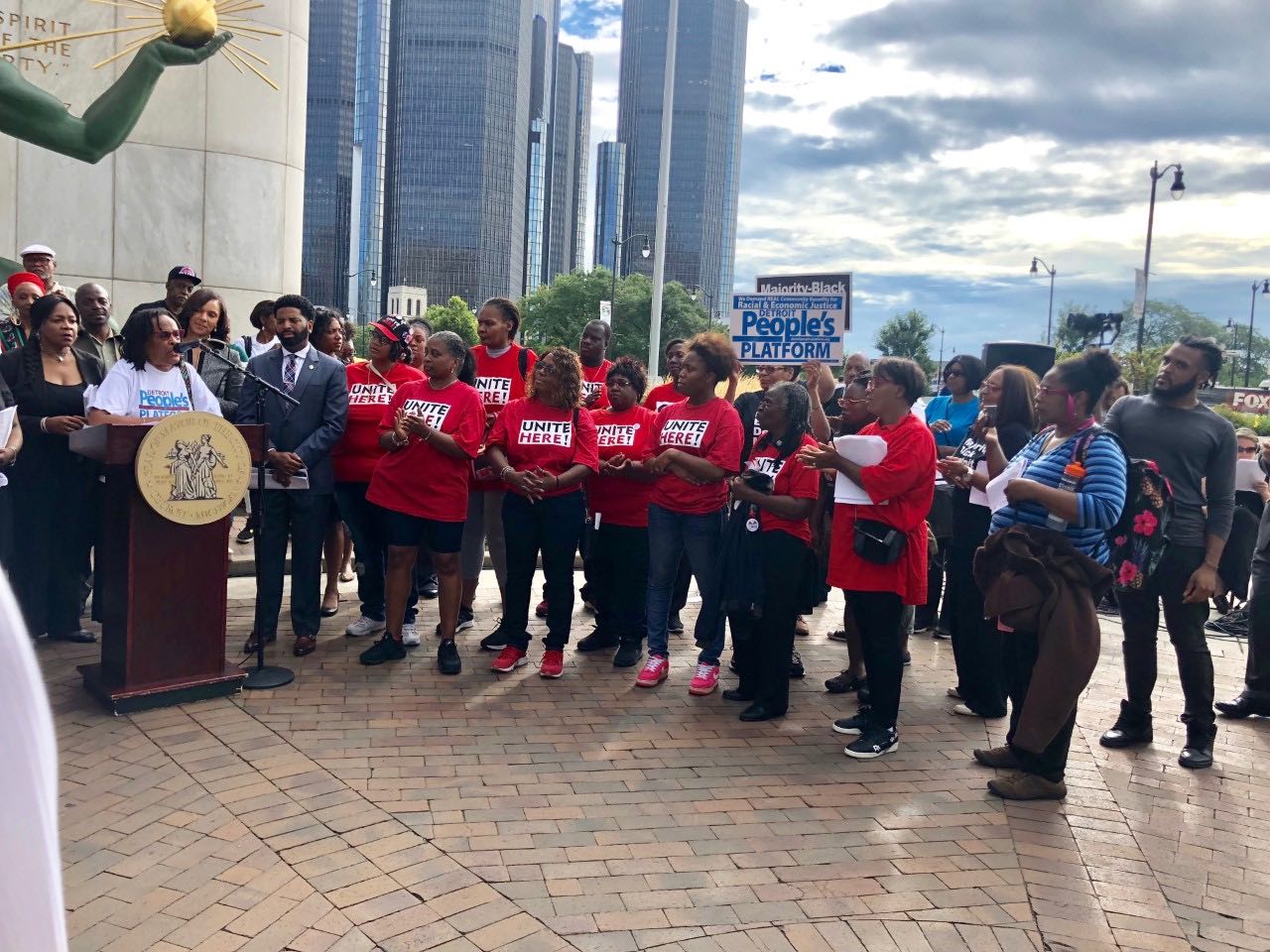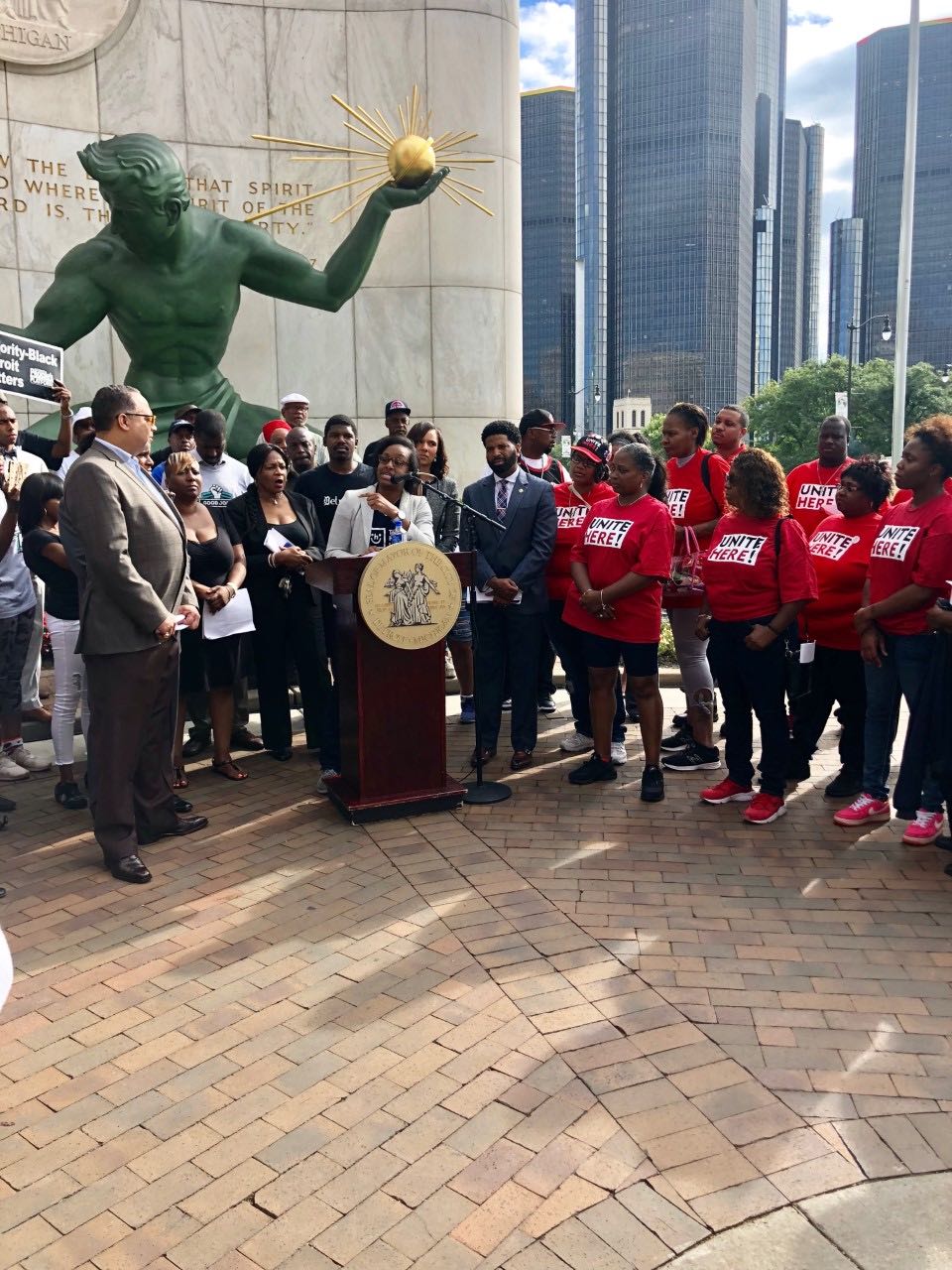
Detroit City Council President Pro-Tempore Mary Sheffield is not quite sure if mayor of the city is in her future, but the people of Detroit sure do, chanting, “Sheffield for mayor” as she unveiled a package of legislation deemed the “People’s Bills” in front of the Spirit of Detroit Monday morning, surrounded by other community advocates and organizations.
The introduction of the various pieces of legislation is the culmination of years of research, meetings and listening to the community regarding their legislative priorities. The People’s Bills will address some of the more pressing socio-economic and human rights issues Detroiters face on a daily basis.
The People’s Bills will include ordinances/resolutions to address the following issues: Mandatory 51 percent of Detroiters on construction projects, water affordability, poverty tax exemptions, community benefits ordinance amendments, homeless Bill of Rights, parking fines reduction, 15-day pay requirement for small businesses, housing trust funds, cash bail disparities, and pay increases for the Detroit Police Department.
“There are some significant challenges that the average, everyday Detroiter is still experiencing in our city,” said Sheffield at the press conference. “Whether it’s access to jobs, contracts, water, or affordable housing, today we lift those voices and those issues, not with just rhetoric, but with solutions through sound policy.
“When I was elected to the Detroit City Council, I promised to offer a more open, transparent and representative form of government to Detroiters. The introduction of the People’s Bills is the direct result of that promise and my attempt to give the people a voice in the public policy process and create a climate in Detroit by which all Detroiters have the opportunity to prosper and improve their quality of life.”

Parking fines in Detroit were raised in 2014 by the city’s emergency manager to help offset debt in 2014. Now, Sheffield is proposing to lower the fine for expired meters and parking in “no parking” zones from $45 to $30. Her proposal also includes giving a 50 percent discount if the ticket is paid off within ten days.
“Parking fines for expired meters and parking violations continue to be a barrier, especially for low-income residents who come downtown,” said Sheffield. “Some people believe the parking fines are essentially a tax to keep Detroiters out of downtown. It should be a place where all are welcome.
“There has been some talk about where we are going to find this money, but I find it quite interesting that every time there is a proposed tax cut for the people, there is an issue. We give out millions of dollars in tax abatements every single year to corporations and billionaires. We have to stop valuing development over people.”
The city of Detroit is experiencing a robust renaissance and Sheffield wants to mandate that 51 percent of Detroiters are hired on all city contracts. The proposed ordinance will apply to all construction projects and all development projects that have received tax abatements. There will also be a mechanism for a financial penalty that would require developers to pay into the Workforce Training Fund and potentially other corrective actions that the city can implement.
“There is currently an ordinance on the books that mandates 51 percent of all publicly-funded projects go to hire Detroit citizens,” said Damian Ellis, managing partner at the Phoenix Real Estate Company. “But any publicly-funded project that goes through DEGC (Detroit Economic Growth Corporation), the Downtown Development Authority, or the Detroit Land Bank Authority, they do not have to abide by the 51 percent ordinance and this is something that has been on the books since the Coleman Young era. That has to stop now.”

Every week in Detroit, up to 3,000 families are affected by water shutoffs due to distressed local economic conditions and the absence of water affordability programs for city residents. The inability to pay full charges for water and sewerage services as a direct impact on those living in poverty, people of color, persons with disabilities, singles parents with children, and elders living on fixed income. Advocates including Tiffani Bell believe water is a basic human right and shutting off water access is inhumane.
“We don’t talk enough about how people suffer from water shutoffs,” said Bell, who pays water bills through the Human Utility project. “I think of a lady named Patricia, who was raising her 5-year-old granddaughter and when she couldn’t afford her water bill because she’s living on a fixed-income, the city shut her water off and put her granddaughter in foster care in some rich suburb. That’s what happens when you can’t afford your water. It would make it more sense to make water affordable so that people can keep their kids.”
There was a heavy police presence at the news conference, and while they were working the event, the People’s Bills also has a direct impact on them. Due to attrition in the Detroit Police Department, City Council is requesting the Legislative Policy Division provide a report which outlines potential revenue sources to increase the starting pay and average pay for DPD’s rank and file to the national average.
“I obviously think it is a great idea to increase pay and possibly other benefits to department officers,” said one officer at the announcement who did not want to be named. “We are out here every day working the dangerous streets of Detroit and a lot of the time, we are overworked. We need to be compensated and there needs to be a way to attract others to the force. Maybe this will be that boost DPD needs.”
The People’s Bills is about creating economic upward mobility for Detroiters, level the playing field and inject the community’s interests into the policy debate. The package of bills has already been brought to the attention of City Council, who has the final approval.